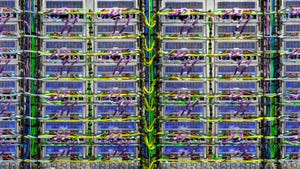Case Studies on Data Center Virtualization
Ongoing power and cooling costs are forcing many data center operators to look for ways to reduce costs and tackle the complexity of their legacy IT infrastructures. One way many organizations attack this problem, as highlighted in this white paper from HP is to consolidate the existing number of systems, using virtualization.
April 28, 2011
Creating a next-generation data center in today’s dynamic, virtualized environment presents a number of challenges for enterprises and service providers. Yet, ongoing power and cooling cost along with pressure to be more efficient are forcing many data center operators to look for ways to reduce costs and tackle the complexity of their legacy IT infrastructures. One way many organizations attack this problem, as highlighted in this white paper from HP is to consolidate the existing number of systems, using virtualization.
Most organizations, especially in today’s economy, need a well-designed IT infrastructure that:
• Provides high levels of: service, availability, server utilization, performance, application isolation, flexibility, and automation at a reasonable cost
• Supports high fluctuation of traffic and demands
• Rapidly deploys, grows, shrinks, and changes server environments in line with constantly changing business requirements
• Provides access to the precise capacity they need at any point in time, but flexible enough to keep that capacity separate from the capacity utilized by other customers.
• Supports fastest time-to-market for new services
This document is targeted to those readers interested in a next-generation data center blueprint specifically designed to eliminate costly IT and application silos. This white paper from HP highlights some common usage scenarios using the different HP-UX virtualization technologies on these servers. There are many cases studies presented here, perhaps one similar to your situation. Click here to download this white paper.
About the Author
You May Also Like

.jpg?width=300&auto=webp&quality=80&disable=upscale)





